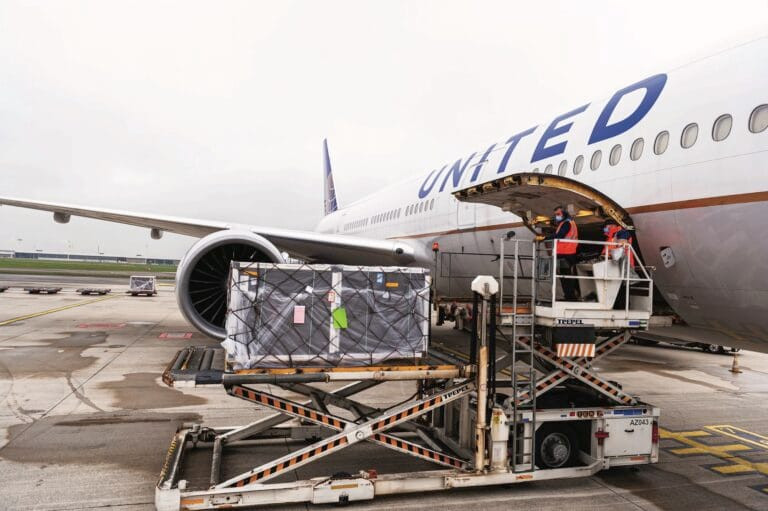Sustainable Aviation Fuel (SAF) is central to United Cargo’s strategy in Asia Pacific, offering customers direct access through Eco-Skies Alliance agreements and supporting emissions reporting and Scope 3 compliance
United is investing in SAF production and related technologies via United Airlines Ventures while embedding sustainability across operations, including recycling programs, trucking emissions tracking, and ESG-aligned partnerships
Physical network expansion in Southeast Asia and North Asia complements sustainability efforts, with new nonstop services to Thailand, Vietnam, the Philippines, and Australia, supporting growing demand for semiconductors, electronics, perishables, and AI-related cargo while integrating SAF into customer supply chains
Sustainable Aviation Fuel (SAF) is no longer a speculative solution—it’s now a strategic offering. For United Cargo, expanding access to SAF isn’t a side initiative, but the backbone of its commercial and environmental approach in Asia Pacific.
With the region’s freight volumes rising and regulatory pressure mounting, United is prioritising SAF engagement with enterprise shippers in Southeast Asia. “Our main priority is expanding access to Sustainable Aviation Fuel (SAF), the most effective tool available today to reduce aviation emissions,” United Cargo told Air Cargo Week.
United’s sustainability pitch to its APAC customer base is grounded in operational tools, not vague targets. “Through United’s Eco-Skies Alliance, we give APAC-based customers the opportunity to participate directly in SAF purchases on both annual and multi-year agreements, allowing them to embed lower-carbon solutions into their supply chains”.
This direct purchasing model reflects growing demand from logistics buyers facing stricter emissions reporting and Scope 3 requirements. In parallel, United is backing SAF production itself. “At the same time, United Airlines Ventures, our corporate venture fund, is investing in innovative SAF producers and technologies, helping ensure that today’s commitments also build the future supply our industry needs.”
SAF access is just one part of a broader emissions strategy now embedded across the cargo business. “United Cargo has launched a dedicated sustainability group to drive progress across our operations. This team is fostering a culture of continuous improvement, advancing initiatives such as recycling programs, incorporating trucking emissions into our reporting, and embedding ESG requirements into our partnerships.”
The airline’s sustainability lens is both pragmatic and infrastructure-focused. “Our approach is both practical and forward-looking: scaling proven solutions like SAF and emissions transparency, while developing the culture, partnerships, and digital tools that will define the next generation of sustainable cargo.”
Southeast Asia network gains
United’s sustainability investments come as its physical footprint in Southeast Asia expands. The carrier is re-entering key offline markets and doubling down on existing ones. “United is continuing its expansion in Southeast Asia by introducing new and additional nonstop services to destinations such as Thailand, Vietnam, and further increasing its presence in the Philippines,” Mirco Renfer, Cargo VP APAC – United Airlines said.
“United is now resuming direct flights to Vietnam and Thailand, transitioning from being offline. Additionally, we are doubling our capacity with twice-daily flights to Manila, Philippines.”
Growth isn’t limited to Southeast Asia. “In Australia, United is launching a new flight to Adelaide from San Francisco on 11th December 2025,” the airline confirmed. Meanwhile, capacity is being adjusted across developed North Asian markets: “The focus remains on enhancing connectivity within Asia, ensuring the right capacity is allocated to key markets like Japan, where larger demand necessitates increased capacity.”
This expansion complements strong revenue performance across the region. “In 2025, United Cargo’s revenue rose 3.8 percent year-over-year. APAC is a large driver of that increase with the growth that the airline has seen across the Pacific region.”
The ramp-up of dedicated service reflects changing cargo patterns and demand. “Regardless of the size or cargo potential, the United network ensures representation and operations within the region.”
Freight mix shifting, ESG rising
The region’s freight profile is also evolving. “The primary drivers of demand in APAC include semiconductors, automotive devices, electronics, apparel, perishables, and most recently, lots of products for AI,” said Renfer.
These verticals, often under investor pressure to decarbonise, are likely to see growing alignment with SAF-based logistics solutions—particularly as international reporting frameworks tighten. United’s pitch is geared towards this shift, offering emissions reduction not just through operations, but through the productisation of SAF.
That approach may differentiate United in a field where many carriers still treat SAF as a long-term goal rather than a near-term deliverable. By packaging SAF access for APAC customers, investing in production, and embedding ESG tracking into trucking and partnerships,




